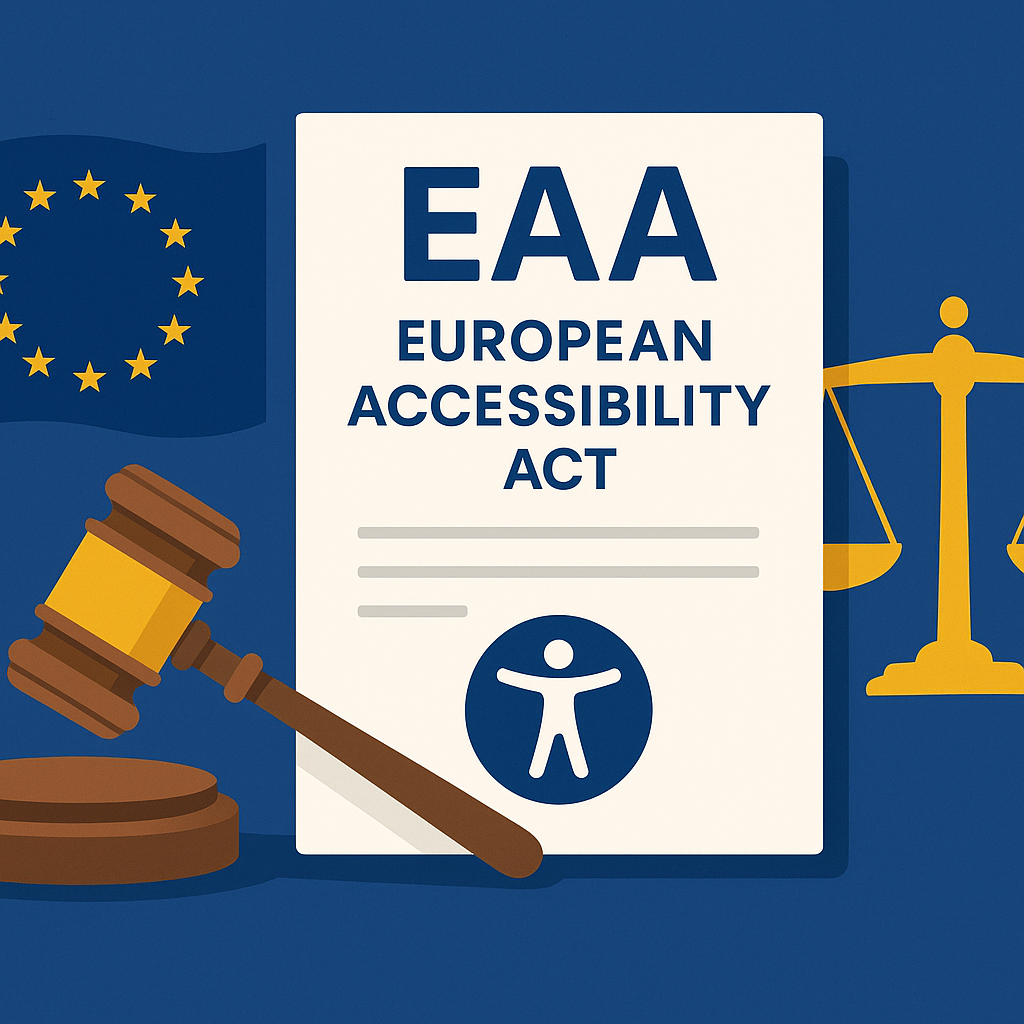What the European Accessibility Act (EAA) is and how to prepare
The EAA comes into enforcement June 28th, 2025.

What is the EAA?
The EAA (otherwise known as Directive (EU) 2019/882) is pivotal legislation aimed at harmonizing accessibility standards across the European Union. By June 28, 2025, it will mandate that a wide range of digital products and services, including websites, apps, e-books, and e-commerce platforms, must be made accessible to persons with disabilities. This directive not only ensures greater inclusivity but also presents a legal obligation for businesses operating within or selling to the EU market, with potential penalties for non-compliance. Organizations must proactively audit their digital presence, implement necessary changes aligned with EN 301 549 which extends WCAG 2.1 AA as the foundational standard (subject to updating to WCAG 2.2), and continuously monitor accessibility to meet these crucial requirements.
What are the benefits the EAA will have on society?
From the European Commission's official page:
Businesses will benefit from:- Common rules on accessibility in the EU leading to costs reduction
- Easier cross-border trading
- More marketing opportunities for their accessible products and services
- More accessible products and services in the market
- Accessible products and services at more competitive prices
- Fewer barriers when accessing transport, education and the open labour market
- More jobs available where accessibility expertise is needed
Products and services covered:
The EAA covers products and services that have been identified as being most important for users with disabilities.
- computers and operating systems
- ATMs, ticketing and check-in machines
- smartphones
- TV equipment related to digital television services
- telephony services and related equipment
- access to audio-visual media services such as television broadcast and related consumer equipment
- services related to air, bus, rail and waterborne passenger transport
- banking services
- e-books
- e-commerce
Consequences for non-compliance
Each EU member state is responsible for the enforcement of the EAA, which should have been transposed into law by June 28, 2022. While not every state has done this, the remaining few are in the final stages of transposition. Each member state determines the final punishment(s) for non-compliance. Some countries have discussed criminal penalties, while others focus on steep fines and remediation of issues.
Resources
- The initial "Impact Assessment" which laid out the groundwork for the EAA legislation
- The EAA law itself
Schedule your FREE discovery consultation to discuss
- Reach out
-
Email us at sales@ravenaccessibility.com
-
Call us at +351 962602732 (Portugal)